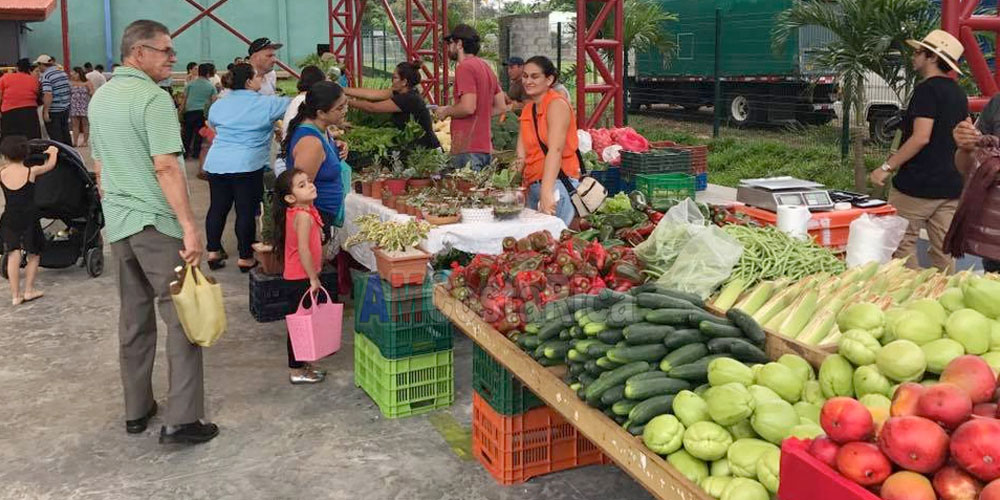 |
|
|
Published Tuesday, April 7, 2020
Almost one month of
no public appearances of Nicaraguan presidentBy the A.M. Costa Rica staff and wire services March 12 marks the last time Daniel Ortega, president of Nicaragua, was seen in a public appearance or TV-broadcasting. He was last seen during a virtual meeting he had with the presidents of the member countries of the Central American Integration System, SICA, in which they discussed how to deal with the Coronavirus pandemic, reported Dora Luz Romero for BBC World news media. According to Romero, the absence of the Nicaraguan president generates doubts and uncertainty among the population, at a time when all the governments of the world seek to take measures and confront the crisis. "Ortega's absence, combined with a policy of secrecy, causes people to be unsure of anything; this increases the anxiety that the public is experiencing in the face of this unprecedented issue," said Eduardo Enríquez, editor in chief of the local newspaper La Prensa. "It is in these situations that countries need reliable leadership and here that leadership is absent." Every day at noon, vice president and first lady Rosario Murillo reports on the progress of the coronavirus in the country through official channels providing few details. Murillo is the official voice of the government in the Central American country and who, amidst poems and biblical verses, insists on reminding Nicaraguans of Ortega's existence. "Our commander, Daniel, guides us, instructs us, and himself is in communication and coordination with all of our authorities," Murillo said. According to Romero, BBC World news media requested an interview with her or other government sources but there was no response. According to official reports from the Nicaragua Ministry of Health, five cases of covid-19 were confirmed in that country, where one died and another was discharged. Ortega's absence and the centralization of the information around the coronavirus raise doubts about whether the figures they provide are real. Meanwhile, businessmen have asked the government to allow private hospitals and laboratories to test for covid-19. The government, despite warnings from the World Health Organization has not taken any preventive measures to avoid the spread of coronavirus. The government has not suspended classes in schools or universities. It has not imposed restrictions on the borders. It has not prohibited massive events and it has not declared any type of quarantine. Instead, it has opted to take measures that have been harshly criticized by the public, such as continuing to hold massive events. On March 14, the government put on a parade called "Love in times of the covid-19" to fight the pandemic. Officials and supporters of the ruling Sandinista Front attended the demonstration. Even though one of the WHO guidelines is social distancing, Murillo announced in March that the Ministry of Health officials would make house-to-house visits to "report" about the covid-19. According to Murillo, they have visited more than 700,000 families across the country. For more reports by Dora Luz Romero follow her at BBC World news. In Costa Rica, due to the lack of precautionary measures by the Nicaraguan government to avoid the spread of the covid-19 coronavirus, the Ministry of Foreign Affairs announced that they will study the situation of the virus in Nicaragua. According to the ministry, they are in the process of interviewing with different governments and international agencies on the situation of the health emergency caused by the increase in cases of covid-19 in Central America. "In Central America, particularly in the organization Central American Integration System, SICA, based on the agreements made through the video conference held by the Presidents and authorities of Government on March 12, and the approval by the Foreign Ministers of the Regional Contingency Plan,” said the ministry. Authorities of the Health Ministry, Emergency Commission, Migration Directorate and Ministry of Security attended the SICA have maintained permanent communications," said the ministry. In the particular case of Costa Rica and Nicaragua, the coordination actions carried out include the meeting of the delegations of both countries led by their respective Ministers of Foreign Affairs, Health, Security and Governance, which was carried out on March 21. On that meeting authorities of the National Emergency Commission of Costa Rica and the National System for the Prevention, Mitigation and Attention of Disasters of Nicaragua with the support of representatives of WHO, analyzed issues related to health, emergency care, security and migration, as well as possible scenarios for cross-border cooperation that would allow facing the covid-19 pandemic more effectively. President Ortega was not present at that meeting. On March 24, President Carlos Alvarado presented to WHO a request to free access to information such as diagnostic tests, devices, medications or vaccines, and use to the member countries of the Organization. However, that request did not specifically include Nicaragua, said the ministry. --------------------- Should the Nicaraguan President appear in public to clarify doubts about his prolonged disappearing? We would like to know your thoughts on this story. Send your comments to news@amcostarica.com |
|
|
|
 |
|
|

  |













